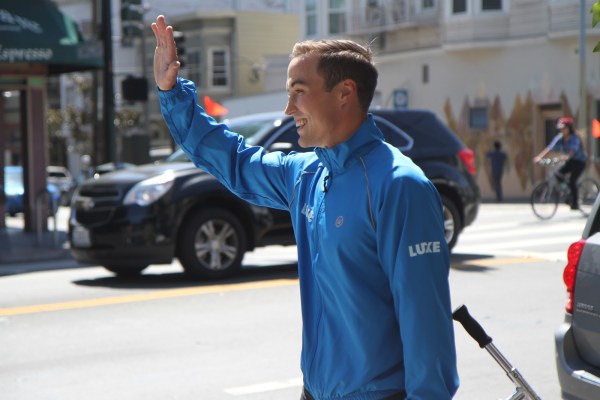After a pivot and months of speculation about the future of car valet and concierge startup Luxe, the company has finally found a home. Today, automaker Volvo Cars announced that it is acquiring the startup’s platform, technology, key staff and other assets, which it will use to put some fuel into its own digital services strategy.
The terms of the acquisition are not being disclosed, but we are trying to find out. The startup, according to Pitchbook, had previously been valued around at least $140 million post-money in its last round of funding, which came from Hertz in 2016 (on a $110 million pre-money valuation, according to our report). One source close to the deal tells us that the terms here were closely guarded, and that the assumption at this point is that it was ‘pennies on the dollar’ based on the last valuation.
Luxe’s service had allowed drivers to drop off their car at any point in a city where services are offered, whereupon a professional valet would find a parking spot for the vehicle, and refuel and clean the car if requested.
As part of the acquisition, Luxe’s CEO and co-founder Curtis Lee is becoming VP of digital for Volvo Cars. “The entire team is coming over including Craig (Martin, co-founder of Luxe),” Lee wrote in an email to TechCrunch. “Craig will be continue to lead our engineering team.”
The move comes at a time when automakers around the world are investing into and buying assets of car-focused tech startups to help propel them into the next generation of car ownership, and cars themselves. Other developments have included sizeable investments in transportation-on-demand startups, acquisitions of self-driving technology and consortiums of car makers cobbling together to buy large mapping and navigation providers.
Volvo — originally a Swedish car maker, before getting acquired by Ford in 1999, and then subsequently by Geely Holding in 2010 — itself has also been a notable player in this evolution: the company in July announced that all of its cars will either electric or hybrid by 2019. A month later, in August, the first rumors began to surface noting that Volvo was interested in buying Luxe.
Volvo already has an operation in Silicon Valley, and Luxe’s team will join that group, the company said.
“Our vision is a future in which technology simplifies life so you never have to stop at a petrol station, go to a car wash or even take your car in for service ever again. The acquisition of Luxe is a step towards realising that ambition. I look forward to working closely with the highly talented team at Luxe who created its advanced technology from the ground up,” said Atif Rafiq, Chief Digital Officer at Volvo Cars, in a statement.
Volvo’s vehicles address various segments in the car-making business — from delivery trucks through to high-end luxury vehicles, and this acquisition sounds like it’s firmly to help develop services for the latter. It plans to offer pick-up and drop-off services; and it will be using the tech for other services, too. “The technology behind Luxe provides the company with advanced algorithms in the areas of routing, logistics planning and arrival time prediction,” the company said.
“As more and more of our cars are connected, the availability of digital services becomes a critical part of the process of selecting a new car. Simplification of experience and placing control directly into the hands of the consumer is what today’s technologies enable, and what defines our vision in the digital space,” said Mr Rafiq.
For Luxe, this is a final destination after months of question marks about the four-year-old company, which is operational across some (but not all) major cities in the U.S., including San Francisco, New York and Chicago. The company had raised over $75 million in funding, with backers including Hertz, GV and Foundation Capital, as well as a lot of individual investors.
But in a world flush with on-demand services, it seems that it wasn’t able to get the right mix of services to the right people to make a fully successful run of its business. The company closed its door-to-door valet service earlier this year as it planned a pivot, and shortly after that we and others heard that Uber was knocking on their door. That deal clearly never closed, and Volvo moved in instead.
In an essay about the acquisition, Luxe’s Lee notes that Volvo approached Luxe several months ago.
“Working at Volvo gives us scale, resources and access to a global company that is committed to the future. Moreover, Volvo is committed to allowing us to fulfil our vision,” he notes. “With the acquisition, Luxe will continue to operate as its own unit working on some of Volvo’s most meaningful initiatives in mobility and digital customer experiences. I look forward to continuing to lead the Luxe team at Volvo.”
Volvo last year sold 534,332 cars, up 6.2 percent on 2015.
